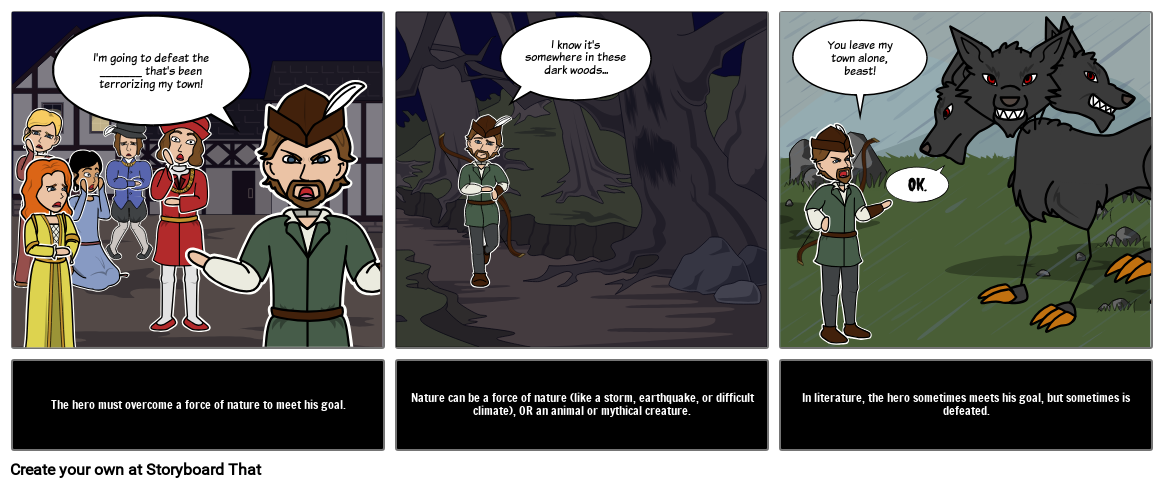

Meanwhile, the dog “…merely obeyed the mysterious prompting that arose from the deep crystals of its being…” (3) by biting ice from between its toes and treasuring the man for his gift of fire. As a technologically savvy human, the man relies on manmade means such as matches and thermal garb, including “…mittens, ear-flaps, warm moccasins, and thick socks” (1) against nature. This is inferred, as neither character is granted a name. The struggle between science and instinct becomes lucid, as the man symbolizes humankind and the dog represents animal instincts. Next, meaningful characterization exhibits how each character reacts to the setting, with one reigning victory. The characters are obligated to survive using the strategies that they have become accustomed to. It was creeping into his body from all sides.” By putting an emphasis on the freezing temperature of the surrounding nature, London makes setting a catalyst for the theme of the triumphant knowledge of instinct. Additionally, the author personifies the weather in such passages: “He was losing his battle with the frost. London expresses the extremity of the frigid weather by syntactically describing it as “…cold and grey, exceedingly cold and grey…” (1). In the exposition, the author introduces the setting by describing the man, who “…turned aside from the main Yukon trail and climbed the high earth-bank, where a dim and little traveled trail led eastward through the fat spruce timberland” (London, 1). The details of imagery regarding setting in the story evince that the man and the dog are submissive to nature, and thus the characters must revert to their known means of survival. To begin, the setting in the story is vital to the significance of the work because it is an unrelenting and static antagonist. To convey to readers that when man is at nature’s mercy, animalistic instinct is victorious over scientific technology, London juxtaposes the two types of knowledge and their evolution throughout the below-freezing hike endured by a man and his dog through the Yukon Trail by using setting, characterization, and imagery. “To Build a Fire” by Jack London expresses an existential crisis through the concept of Naturalism. Whether he has imagination or not, the man's thoughts mean nothing in the face of the vast and cold Yukon.“But man is a part of nature, and his war against nature is inevitably a war against himself.” This quote by Rachael Carson evokes the internal struggle of man in his yearning to survive against the incessant onslaught of nature. In "To Build a Fire," Jack London shows us that nature's true value lies in the fact that it does not care about humanity.

Does the man have any say in his fate, or are all his efforts useless in the face of nature's brute power?.When Jack London represents nature as something that is cold and indifferent to human happiness or survival, does this mean that he hates nature?.Questions About Man and the Natural World In "To Build a Fire," London plays this note constantly in his descriptions of the vast, brutal quality of the Yukon landscape, and the indifferent survivalism of the dog, who also couldn't care less if the guy lives or dies, as long as he can get his four paws near a fire. It just doesn't care one way or the other if humans are happy, or self-actualized, or, well alive. That's not to say that nature's an evil force in London's eyes. London reacted to this tendency through a style known today as "literary naturalism," which depicted nature as a brutal force that was completely indifferent to humanity's existence or accomplishments.


For much of the century before Jack London started writing, Americans often wrote about how a return to nature would allow us to reach some sort of transcendent state or bliss (we're looking at you, Henry David Thoreau).


 0 kommentar(er)
0 kommentar(er)
